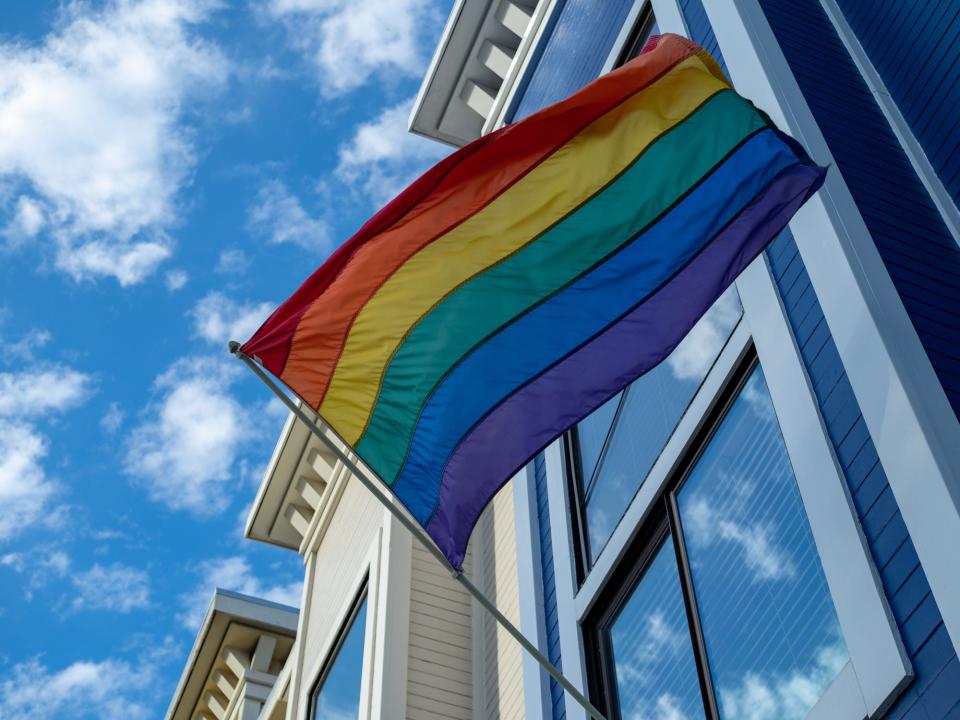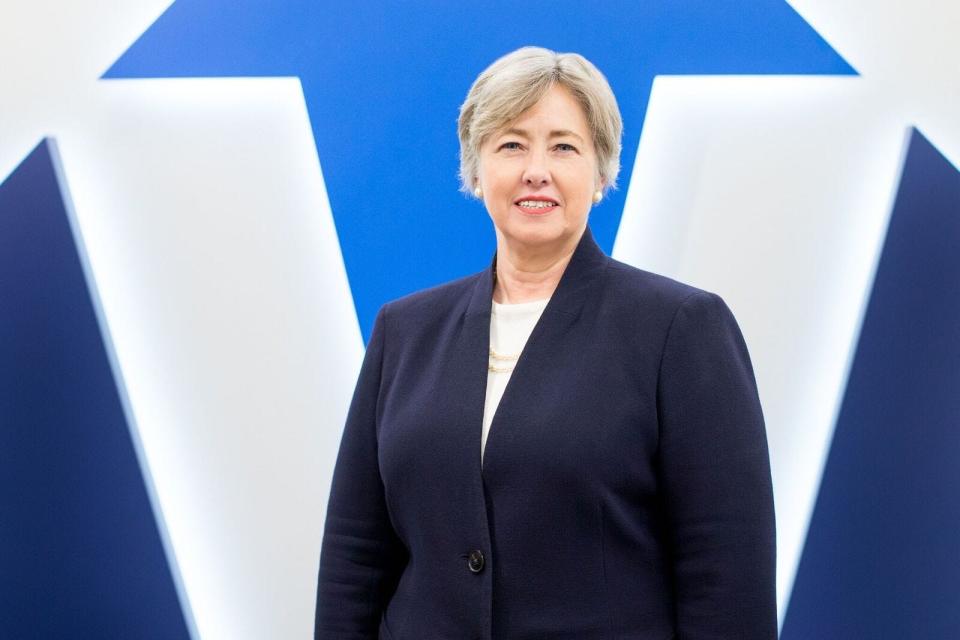LGBTQ+ politicians like me fight for equality. We'll keep winning despite vile attacks.
With my election in 2009, Houston became America’s largest city to elect an out LGBTQ+ mayor. In the lead-up to the election, I faced vile anti-LGBTQ attacks. Angry pastors spoke out against me − not about my policy platform, but because I am a lesbian. Anti-LGBTQ extremists sent mailers to voters ridiculing my relationship with my wife.
Now, 14 years after my election, the question unfortunately remains: Do LGBTQ+ candidates still face these same attacks?
The LGBTQ+ Victory Institute’s newly released “When We Run” report is the largest survey of LGBTQ+ candidates ever conducted in the United States. It arrives at a crucial time: A record 75 anti-LGBTQ bills have been signed into law this year, among hundreds that were proposed.
“When We Run” provides insights into what drives LGBTQ+ people to run for office, as well as details of their experiences on the campaign trail. More than 470 LGBTQ+ people who ran for office between 2018 and 2022 responded to the survey done in partnership with Loyola Marymount University’s LGBTQ+ Politics Research Initiative.
Over 70% of LGBTQ+ political candidates face harassment
The results show that LGBTQ+ political candidates overwhelmingly fear being targeted and attacked, harrowingly mirroring the anti-LGBTQ prejudice spreading across the nation.
About 8 in 10 respondents feared that running as an LGBTQ+ candidate would increase the likelihood of harassment or attacks against them.
They were right to feel that way. More than 7 in 10 LGBTQ+ candidates experienced anti-LGBTQ attacks during their campaign. Nearly 1 in 3 (29.4%) gender nonconforming, genderqueer and nonbinary candidates faced attacks at least once a week. About 1 in 5 Black (21.3%) and Asian (19.1%) LGBTQ+ candidates also faced anti-LGBTQ attacks at least once a week.
Anti-drag laws harm kids: I'm a drag queen who loves reading to kids. Those protesting me are the real danger.
Black LGBTQ+ candidates endure attacks on their families
Trans women, gender nonconforming, genderqueer and nonbinary people were discouraged from running for office at much higher rates than cisgender people, and 67.6% of them faced attacks on their personal appearance. Black LGBTQ+ candidates were most likely to experience attacks against their families.
While attacks via social media were most common, more than 1 in 3 (36.3%) faced verbal anti-LGBTQ attacks during their campaigns and almost 2 in 10 (18.6%) received hate emails.
These numbers are alarming, but not surprising.

There is a lot to unpack. When an LGBTQ+ person runs for office, they spur change through their visibility. Winning an elected seat goes beyond visibility; candidates enact pro-equality policy. Nearly 4 out of 5 (79.3%) LGBTQ+ candidates said a desire to make change in their community was a top motivation to run. And as they serve their constituents over time, LGBTQ+ officials change hearts and minds about who we are as people.
However, the “When We Run” survey shows that LGBTQ+ candidates must be as brave as ever to run, as they are discouraged on the basis of their LGBTQ+ identity. They face various prejudices: from threats of harassment during events, to voters questioning an LGBTQ+ person’s electability, to repeated anti-LGBTQ attacks in person and online.
The attacks are so concerning because LGBTQ+ people remain underrepresented. More than 1,200 LGBTQ+ people serve in elected office as of August, but America still needs to elect 36,000moreto reach equitable governmental representation.
SCOTUS decision sets LGBTQ rights back: Supreme Court 303 Creative decision distorts religious freedom. We are no longer equal.
Despite everything, I’m cautiously optimistic. A record-breaking 1,065 out LGBTQ+ people ran for office in the United States last year, from school board seats in rural towns to toss-up gubernatorial seats. More than 430 of them were successful.
Because these 430 plus courageous elected officials faced unique challenges, I now have the data to support them even more vigorously.
Opinion alerts: Get columns from your favorite columnists + expert analysis on top issues, delivered straight to your device through the USA TODAY app. Don't have the app? Download it for free from your app store.
First, we must educate our friends, family and all Americans about these unique obstacles of running for office as an LGBTQ+ candidate. Second, we need to elect more LGBTQ+ people to every level of government.
As nearly half of LGBTQ+ candidates reported raising money as a top challenge during their campaigns, I urge everyone to realize that donations to LGBTQ+ candidates not only help win seats, but also help candidates navigate hate-filled obstacles.

It’s difficult to balance the joy of knowing that more LGBTQ+ people are running than ever before with the burden of understanding that they are frequent targets of hate.
These candidates make the same conscious decision that I did. Despite the legitimate fears, we run for office because homophobic and transphobic slurs and threats pale in comparison with our vision for change and our desire to serve. Our vision includes a country that is more equal.
LGBTQ+ candidates are not only the present but also the future – changing the profile of what a politician looks like in America and inspiring future generations of elected leaders. In the face of our successes, anti-LGBTQ extremists use underhanded tactics to intimidate us before we even make it to the campaign trail. They are terrified of our progress because they know that when we run, we win.
Annise Parker is president and CEO of LGBTQ+ Victory Institute. She is a former mayor of Houston.
You can read diverse opinions from our Board of Contributors and other writers on the Opinion front page, on Twitter @usatodayopinion and in our daily Opinion newsletter. To respond to a column, submit a comment to letters@usatoday.com.
This article originally appeared on USA TODAY: LGBTQ candidates endure hateful attacks to campaign. We won't stop

